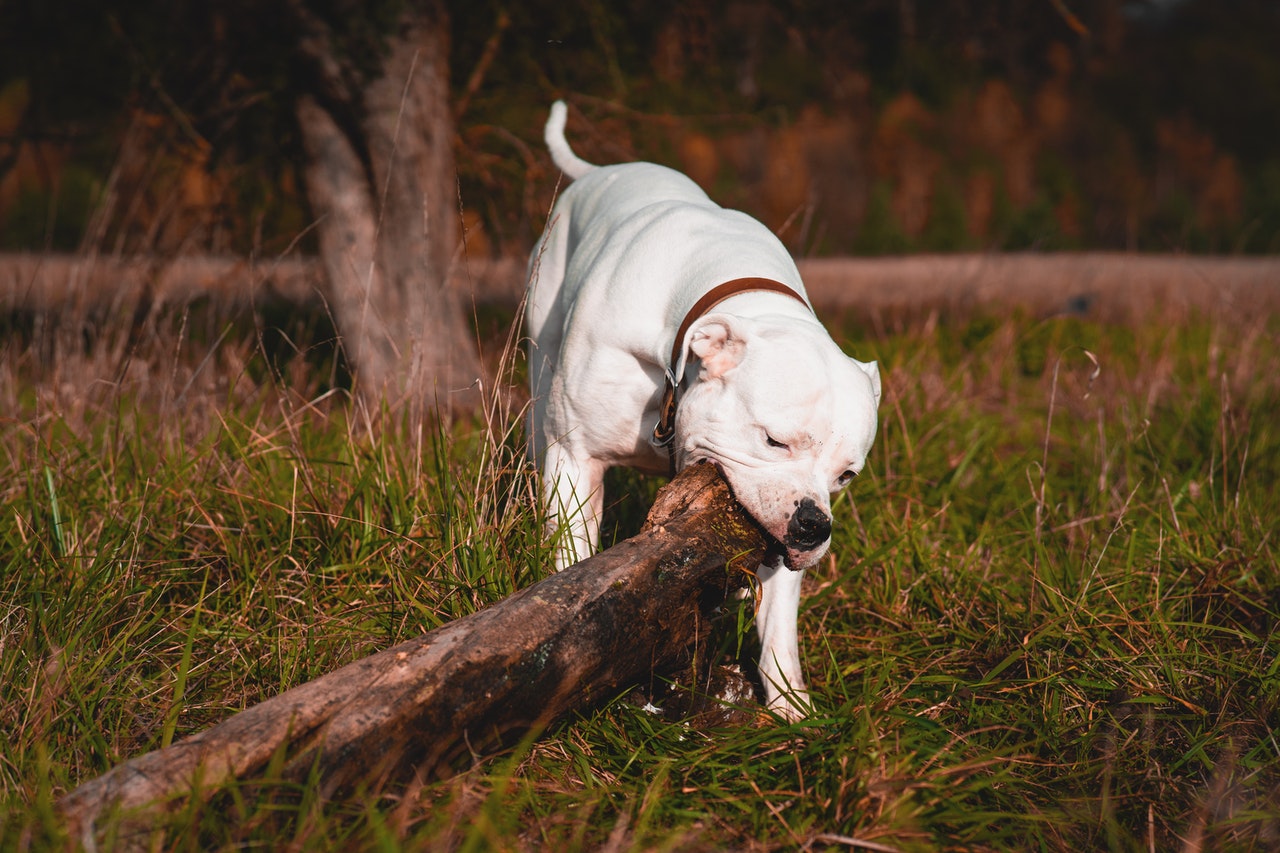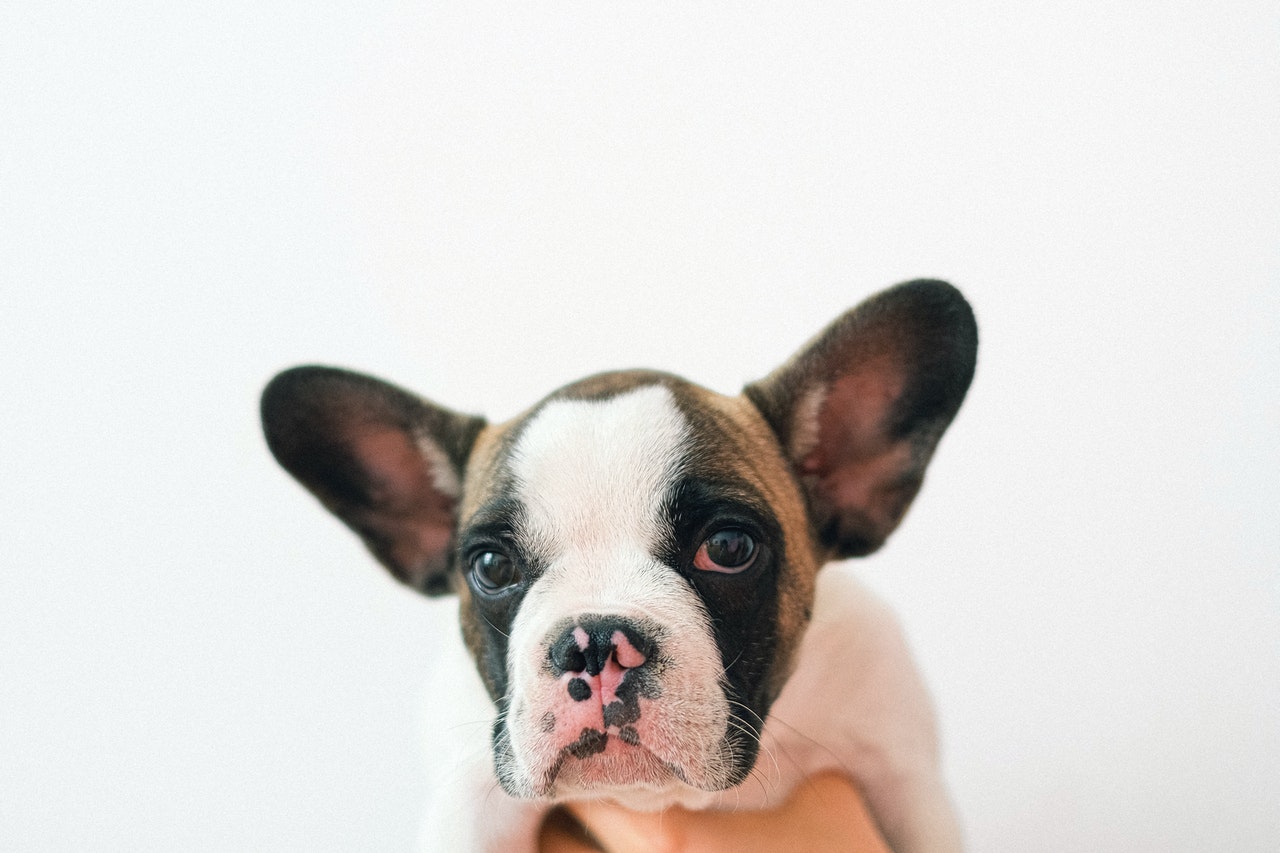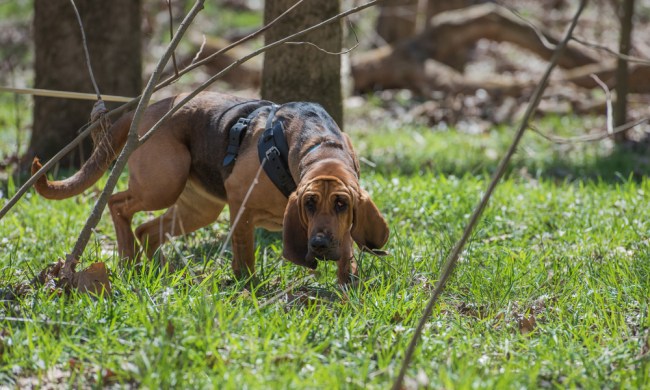With their sweet, wrinkled faces and slobbery smiles, bulldogs, affectionately known as bullies, are undoubtedly one of the most adorable creatures on the planet. Bulldogs are also one of the most famous breeds, not to mention the number-one name for college mascots in the US. In fact, 15 schools currently use the name “Bulldogs.” But did you know there are 13 different bulldog breeds? We’ll take an in-depth look at the three most popular breeds (English, American, and French) as well as the bulldog characteristics you need to know to help you determine if a bully is the right fit for you.

American bulldog
Sometimes confused with the Dogo Argentino or American pit bull terriers, the American bulldog is a large, muscular breed originally used to bait bulls. Males range from 22-25 inches tall at the withers and weigh 75-100 pounds, while females tend to be much smaller, averaging 20-23 inches and weighing in at 60-80 pounds. Unlike many large dog breeds, the American bully has a relatively long life expectancy for his size; most live between 10-12 years. Potential health concerns include skin infections, hip and elbow dysplasia, and hypothyroidism.
If you travel frequently, work long hours, or if you’re an inexperienced dog owner, then the American bulldog might not be the best breed for you. American bullies are highly energetic, and they require plenty of physical exercise and almost constant attention. You can’t leave an American bully outside in your backyard for 12 hours at a time, as they easily become prone to behavioral problems if left unattended. They also have a high prey drive, so they require early socialization with other animals.
That being said, an American bulldog can be the perfect companion for the right person. If you live an active lifestyle and have the time and patience to dedicate to training your dog, an American bully might be the perfect fit. Known for their exuberance and entertaining antics, American bulldogs are almost relentlessly good-natured with family members. However, American bulldogs are aloof around strangers and fiercely devoted to children, making them an ideal guard dog.

English bulldog
Famous for their squat build and drooping jowls, English bulldogs, often referred to simply as “bulldogs,” are kind, friendly, and courageous. They stand roughly 14 to 15 inches at the withers and weigh between 40 to 50 pounds. Unfortunately, these delightful companions have fairly short lives, averaging 8 to 10 years. Calm and watchful, English bulldogs make fantastic family pets if you live in an apartment or have a small yard.
Unlike the American bulldog, the English bulldog gets along well with other dogs — and even cats — as long as they’re properly socialized. Despite their inherent sweetness, English bulldogs are outstanding watchdogs. But even these wonderful pups have their drawbacks. Their adorably squashed faces are the result of inbreeding and have resulted in breathing difficulties. English bulldogs are prone to overheating in hot climates, but they’re also sensitive to cold weather and require a sweater when the temperature drops. As with American bulldogs, English bulldogs can develop skin infections if their skin folds aren’t cleaned frequently.
If your idea of a good time is a cuddle session on the sofa while you binge your favorite show, an English bulldog is a great fit for you. Just be prepared to turn the volume up loudly enough to drown out your bulldog’s snoring. (And you might want to get him a bandana to soak up all that drool.)

French bulldog
Big dogs aren’t for everyone. If you want the characteristic wrinkles of American and English bulldogs without the bulk, the French bulldog could be an ideal companion. French bulldogs, affectionately known as Frenchies, are tiny bundles of personality. Averaging 11-13 inches at the withers, Frenchies typically weigh under 28 pounds and have a life expectancy of roughly 10 to 12 years. Charismatic, playful, and affectionate, Frenchies are actually English in origin, but lacemakers introduced the breed to France’s Normandy region, where these feisty pups gained their nickname.
Much like English bulldogs, Frenchies are fantastic family dogs. Because they were bred to live and work with people, Frenchies are natural people-pleasers, so they get along well with all members of the family, including children. While many small dogs have earned a bad rap for barking incessantly, Frenchies only bark when they’re extremely excited, making them ideal for apartment life.
In spite of their many attributes, Frenchies tend to have a multitude of health problems. According to research, the second-most popular dog breed in America is more likely to develop health problems than any other breed. Like other bully breeds, Frenchies are predisposed to breathing issues, hip dysplasia, and skin infections.

Whether you live an active lifestyle or prefer to relax at home, you’ll be able to find the perfect bully breed to suit your requirements. If you purchase from a reputable breeder to ensure your pup is as healthy as possible, keep an eye on your dog during extreme weather, and make sure to clean those skin folds, you’ll be able to enjoy years of companionship with your sweet, wrinkly pooch.



